Charleston Currents #13.17 | March 8, 2021
STACKED UP. A fleet of shrimp boats is anchored along Jeremy Creek in McClellanville in a photo taken over the weekend by the talented English Purcell of Charleston. It reminds us all how important it is to have a local seafood industry to supply tables with fresh fish and shrimp. See something you think our readers would enjoy? Snap a shot and send it along to editor@charlestoncurrents.com.
FOCUS: Why telling the truth is so important
COMMENTARY, Brack: State doing better than you might think, feel
IN THE SPOTLIGHT: S.C. Ports Authority
NEWS BRIEFS: Charleston GOP straddles the fence on Trump
FEEDBACK: Send us your thoughts
MYSTERY PHOTO: Where is this bridge?
CALENDAR: “Blind Justice” prints available through March 15
Why telling the truth is so important
By Dr. Robert Saul, special to Charleston Currents | Truth-telling is an essential skill for personal life, for interpersonal social interactions, for community activities and for governmental decision-making.
 This obviously goes without saying, but I would argue that we are suffering from some of the recent ill effects of “less than truth-telling.”
This obviously goes without saying, but I would argue that we are suffering from some of the recent ill effects of “less than truth-telling.”
Before everyone starts pointing fingers at each other or at the other political party, let’s settle back and just be honest with each other. Truth-telling can be hard at times (it has consequences) and listening to truth-telling can be hard at times (it can change our thoughts and actions). And it indeed takes a good deal of perseverance.
Truth is not in the eye of the beholder. Truth is a series of facts that often need to be proven or investigated. Truth is not an opinion. Truth is not a series of alternate facts because a series of alternate facts is a series of untruths. The search for truth can be frustrating but eventually leads to the correct way to live and to conduct oneself.
Let’s look at the various spheres of involvement.
Personal. Truth-telling on a personal level affects interaction with ourselves, family members and others. We have all been guilty of “fudging” the truth sometimes when trying to figure out if we should admit to an indiscretion or not. Yet such an exercise is critical for our personal development, our physical and emotional well-being, and our ability to mature and engage others in an effective way. Honesty with ourselves allows us to promote the truth and also can allow us to improve our lives. We need to realize that we might know some facts but not the whole truth. Life and knowledge can be complex. Context may change the relevance of certain truths, and new revelations can lead to reassessments that can alter our behavior. Introspection is critical and must be done with sincerity and humility.
Interpersonal. Our interactions with others demand our use of common truths. If we expect to interact in an honest manner with others, we have to accept the facts that govern a civil society. We have to interact with our family members, friends and colleagues in a truthful manner. This means that we have to be willing to listen and adapt to change with interactions with others and that we don’t simply tell folks “what the truth is.” We must listen and assess and use the truth as a guiding principle, calling out untruths when needed.
Community. For any positive changes to occur in our communities, citizens and their leaders need to exchange ideas and improvements in a manner that uses facts and groups of facts (truth). In the search for truth, citizens need to be willing to listen to each other, to have open discussions with honest interactions that can accept information that can reveal uncomfortable information that might change our views and behavior. Often, we need to seek the counsel of others (educators, teachers, scientists and the like) as we reveal past “truths” that might have been inappropriately labeled as undeniable truths but in fact were based on past biases and are clearly not true. Communities only move forward with a common set of values.
Government. The actions of our public officials should be predicated on truths, but this can be very difficult to accept. In 2020, we had a dramatic demonstration of this. Information based on science can be static and ever evolving at the same time. The COVID-19 pandemic revealed that basic science (the understanding of virology) can be altered as new information comes to light about how this disease spreads and causes disease (the use of epidemiology). The former is rather static, but the latter can be quite the moving target. However, the subversion of epidemiology (by dismissing the importance of face masks and physical distancing and appropriate public health information) during the pandemic by non-experts in the previous administration led to excess unnecessary deaths. Ignoring the truth about the public health crisis and ignoring the promotion of widespread measures that could have averted thousands of deaths provides a dramatic example of the importance of truth-telling.
Truth-telling is essential at all levels and the necessary precursor to trust. It requires honest interactions with ourselves, our families, our fellow citizens and our public officials. This work is hard and ongoing.
Dr. Robert A. Saul is a Greenville pediatrician and the author of “My Children’s Children: Raising Young Citizens in the Age of Columbine” and “All About Children.” Have a comment? Send to: editor@charlestoncurrents.com.
State doing better than you might think, feel
By Andy Brack, editor and publisher | Our roadways are busy. Traffic is back. If you walk on downtown streets, there are more people than in a long time. Tourists are returning. Restaurants are opening. Airports are picking up steam.
 While South Carolina’s infection rate for COVID-19 remains one of the highest in the nation, we seem hellbent on getting back to normal — even though it would be smarter to remain cautious and as distanced as much as possible for three more months until most Americans are vaccinated.
While South Carolina’s infection rate for COVID-19 remains one of the highest in the nation, we seem hellbent on getting back to normal — even though it would be smarter to remain cautious and as distanced as much as possible for three more months until most Americans are vaccinated.
In many ways, South Carolina has never been truly shut down like other states, except for a few weeks in the spring last year. Instead, most of us adapted by wearing masks, not going to events and crowded places, shopping at odd hours and staying in more than before the pandemic.
“As COVID first hit, you could drive down the highway and see a ghost town, but now it’s back to normal,” said Jason Lee, president of REV Federal Credit Union in the Lowcountry.
But across the state, people seem to think we have been in total lockdown. Nope. That was California or New York where many people didn’t leave their homes for long periods of time.
It’s the age-old difference between perception and reality. Because the pandemic has altered lives, South Carolinians seem to think things have been just horrible for months on end. That’s the perception. (Look at it another way, too. Haven’t you caught up on home projects? Learned some new skills? Spent more time with immediate family? Saved a little money from not going out as much?)
The reality is we’re really not off the mark as much as you might think — because we never truly shut down as infections raged.
Overall, the state’s economy is off about 2 percent of what it was before the pandemic. If you take away the leisure and hospitality industries — which were hit particularly hard by the pandemic — South Carolina has pretty much recovered, said research economist Joey Von Nessen of the Darla Moore School of Business at the University of South Carolina.
“We’ve seen significant recovery in South Carolina, but it’s been very dichotomous as well,” he said. “If you pull leisure and hospitality (from the numbers), we have seen employment recover within 1 percentage point of where it was before the pandemic hit. That’s a very strong recovery the state has seen. But if we look at leisure and hospitality by itself, it’s still down about 16 percent in employment of where it was.”
In February 2020, 2,217,100 of all South Carolinians were employed, according to the U.S. Bureau of Labor Statistics. By December, the number was off just over 60,000 jobs to 2,156,400 people with jobs.
Now look at leisure and hospitality. Last February, 281,700 people were employed in the sector, compared to 236,000 in December. In other words, three in four of South Carolinians without jobs are from this one sector with only 15,000 people from all other sectors.
In fact, many sectors are doing very well.
“From a housing perspective, there is a lot of lending going on,” said Lee, who added that his bank had a banner year last year. “It seems like it shouldn’t have been that way. Deposits grew by 18 percent and loans by 20 percent.”
In the hot Charleston market, for example, owners with homes on the market reportedly are sometimes getting offers above list value. Total single-family sales volume was up nearly 17 percent in 2020 over 2019, Von Nessen said, which made the total sales volume for the year to be one of the strongest ever in the region.
Yet despite examples and data, most people really don’t feel things are different. Maybe it’s because COVID-19 vaccinations aren’t yet ubiquitous. Or we just don’t feel like things are back because of masking, distancing and ways we changed behaviors.
And there’s data to support that, too. Consumer confidence surveys show Americans have much less faith in what’s going on than a year ago. The University of Michigan’s Index of Consumer Sentiment was at 101 points before the pandemic, but down to 76.8 in February.
Confidence will take time to rebound, but it will — just like most jobs have.
Andy Brack is editor and publisher of Charleston Currents, and publisher of the Charleston City Paper. Have a comment? Send to: editor@charlestoncurrents.com.
South Carolina Ports Authority
 Founded in 1942, the South Carolina Ports Authority (SCPA) owns and operates public marine terminals at two port facilities, the Port of Charleston and the Port of Georgetown, in addition to inland ports in Greer and Dillon, S.C. These facilities are owner-operated terminals, meaning the SCPA owns the terminals, operates all container cranes, manages and operates all container storage yards and leads all customer service functions in both the yard and the lanes.
Founded in 1942, the South Carolina Ports Authority (SCPA) owns and operates public marine terminals at two port facilities, the Port of Charleston and the Port of Georgetown, in addition to inland ports in Greer and Dillon, S.C. These facilities are owner-operated terminals, meaning the SCPA owns the terminals, operates all container cranes, manages and operates all container storage yards and leads all customer service functions in both the yard and the lanes.
SCPA promotes, develops and facilitates waterborne commerce to meet the current and future needs of its customers, and for the economic benefit of the citizens and businesses of South Carolina. In fact, SCPA facilities in Charleston, Dillon, Georgetown and Greer drive $63.4 billion in annual statewide economic impact and 1 in every 10 S.C. jobs is attributed to the port.
- For more information, visit www.scspa.com.
- To meet all of our underwriters, click here.
Charleston GOP straddles the fence on Trump
A new profile in The New Yorker of the South Carolina fissure between Trump acolytes and old-time Republicans has Charleston County GOP Chairman Maurice Washington in a pickle, Peter Slevin reports:
“It’s hard to please everyone, Washington said, especially when some of his fellow-Republicans can barely stand one another. But he believes that the best way forward for the Party, if it hopes to remain viable in contested districts, is to welcome everyone. Even QAnon believers?
“Absolutely,” he said. “Look, you can’t be dismissive of people who have strong viewpoints. People have got to be open-minded to hear things they don’t want to hear, but still stay at the meeting. The choice was to condemn, correct, and create a further divide. To do it in the midst of peers, you put people where? On the defensive.”
In other recent news:
![]() Critics say Dominion solar energy proposal could dim S.C. market. Dominion Energy’s South Carolina customers with solar power systems could face higher bills under a new proposal before state regulators this month. The energy utility says the additional fees are designed to account for differences in how solar customers are charged, ensuring they are sharing infrastructure costs with non-solar Dominion ratepayers. But solar energy industry and conservation advocates say the regulatory move could kill the state’s solar power market by raising costs for customers who invest their own money in renewable energy. At issue is a proposal that would add at least $428 per year to the bills of Dominion’s residential solar energy customers, but typical customers could pay hundreds more.Dominion and its critics have been jousting in front of the S.C. Public Service Commission (PSC) for months. A formal public hearing on the issue is scheduled for March 23. Read more in Statehouse Report.
Critics say Dominion solar energy proposal could dim S.C. market. Dominion Energy’s South Carolina customers with solar power systems could face higher bills under a new proposal before state regulators this month. The energy utility says the additional fees are designed to account for differences in how solar customers are charged, ensuring they are sharing infrastructure costs with non-solar Dominion ratepayers. But solar energy industry and conservation advocates say the regulatory move could kill the state’s solar power market by raising costs for customers who invest their own money in renewable energy. At issue is a proposal that would add at least $428 per year to the bills of Dominion’s residential solar energy customers, but typical customers could pay hundreds more.Dominion and its critics have been jousting in front of the S.C. Public Service Commission (PSC) for months. A formal public hearing on the issue is scheduled for March 23. Read more in Statehouse Report.
Big environmental grant. Dominion Energy has awarded $500,000 to the South Carolina Aquarium to allow it to continue offering school programs to state students for free. “We are proud to support a wide variety of educational initiatives across the communities we serve, and education is at the heart of what the South Carolina Aquarium does every day,” said Rodney Blevins, president of Dominion Energy South Carolina. “This gift will reinforce the critical role of STEM-based classroom activities as the Aquarium continues to inspire a passion for environmental stewardship in students from all across our state.”
Woman of the Year. Barbara Melvin, chief operating officer of the S.C. Ports Authority, has been named 2021 Woman of the Year by the S.C. Manufacturers Alliance for her years of support for the state’s manufacturing sector. “Barbara has held many leadership positions at the port over the past 23 years, which has given her a deep understanding of port operations and the maritime community,” SC Ports CEO Jim Newsome said. “Barbara has a great ability to understand complex projects with insight and intellect, and she invests time to know her team. She is instrumental in our success at S.C. Ports, which further supports our state’s thriving manufacturing sector.”
Bill allowing open carry in S.C. heads to House floor. After the House Judiciary Committee voted 16-8 Tuesday to approve a measure allowing the open carry of handguns, the bill headed to the House floor. Expect it to be debated next week on the House floor. More: AP/WSPA.
S.C. Senate committee passes bill making it easier to access birth control. After the legislature passed a measure to essentially end all abortions, a GOP-sponsored bill that would allow pharmacists to prescribe a woman a contraceptive without a patient-specific prescription has passed a state Senate committee. More: WCSC TV. Also see The Post and Courier.
- Have a comment? Send to: editor@charlestoncurrents.com
Got something to say? Let us know by mail or email
We love hearing from readers. Comments are limited to 250 words or less. Please include your name and contact information. Send your letters to: editor@charlestoncurrents.com. | Read our feedback policy.
Where is this bridge?
Here’s a South Carolina bridge with which you might not be familiar. Where is it? Is it named for anyone in particular? Send your best guess to editor@charlestoncurrents.com. And don’t forget to include your name and the town in which you live.
Our previous Mystery Photo
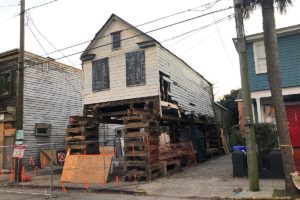 Our March 1 photo, “Raised house,” was so tough that no one in Charleston could guess it. But our two out-of-state super-sleuths, George Graf of Palmyra, Va., and Allan Peel of San Antonio, Texas, figured it out. (We give Mount Pleasant resident Chris Brooks a good college try for getting the general neighborhood correct!).
Our March 1 photo, “Raised house,” was so tough that no one in Charleston could guess it. But our two out-of-state super-sleuths, George Graf of Palmyra, Va., and Allan Peel of San Antonio, Texas, figured it out. (We give Mount Pleasant resident Chris Brooks a good college try for getting the general neighborhood correct!).
The photo shows an old single house on St. Philip Street near D’Allesandro’s Pizza that’s been raised up for renovation.
Peel provided some insight: “Today’s mystery photo shows the ‘raising’ of a building located at 223 St. Philip St. in the Historic District of Charleston. Click here to see the last (Aug 2019) street view of this house from Google Maps, and what it looked like before the renovation work was started. As you can see from the red sign with a white cross posted on the front of the building, it was abandoned and considered unsafe for occupancy, even though there was a ‘For Lease” sign posted on it as well.
“When ‘raising” a building in this fashion, the objective is to raise it up several feet and install a new foundation to protect the house from future floods. This is becoming an increasing common, albeit expensive, practice to preserve some of Charleston’s historic buildings.”
Send us a mystery: If you have a photo that you believe will stump readers, send it along (but make sure to tell us what it is because it may stump us too!) Send it along to editor@charlestoncurrents.com.
“Blind Justice” prints available through March 15
Staff reports | Charleston Pro Bono Legal Services will have prints on archival paper and giclee of a colorful, stunning painting representing “Blind Justice” through March 15 that will benefit the organization. Charleston artist Danielle Cather Cohen recently donated the original artwork (oil on linen, 24” x 30”) to the nonprofit and gave exclusive rights for sale of the prints to benefit the legal aid organization.
The painting features Lady Justice with the famed Four Corners of Law located at the corner of Meeting and Broad Streets balancing on the scales. You can pre-order copies through March 15 as a 24” x 30” archival matte print ($225) or a 16” x 20” giclee canvas ($275).
“Danielle has been supporting our office for several years, specifically through our annual fundraiser Art on the Beach,” said Alissa Lietzow, the nonprofit’s executive director. “We came up with the idea for ‘Blind Justice’ late last year and Danielle was adamant that not only would she donate the original, but that we should sell prints to make some money to support our mission.”
Charleston Pro Bono Legal Services doubled its staff in 2020, from five to 10 in an attempt to address the increased demand for legal aid. They provide no-cost civil legal aid to low-income residents in Charleston County. Over the past year, the office has handled hundreds of cases involving housing law, family law, consumer law, employment law and estate planning.
Also on the calendar:
![]() Like A Girl: Dare to Dream: March 11 to May 2, City Gallery, Prioleau St., Charleston. Featuring portraits of more than 35 South Carolinian women, Like a Girl is a new exhibition by artist Fer Caggiano that brings attention to women who have excelled, each with unique and inspiring stories. In them, girls and other women will see on canvas their potential: they can be strong, smart and beautiful, and ready to make their mark on the world. Learn more.
Like A Girl: Dare to Dream: March 11 to May 2, City Gallery, Prioleau St., Charleston. Featuring portraits of more than 35 South Carolinian women, Like a Girl is a new exhibition by artist Fer Caggiano that brings attention to women who have excelled, each with unique and inspiring stories. In them, girls and other women will see on canvas their potential: they can be strong, smart and beautiful, and ready to make their mark on the world. Learn more.
“Living Dead in Denmark:” 7:30 p.m., March 12 and March 13, livestreamed. The College of Charleston’s Department of Theatre and Dance will stage this play by Vietnamese-American playwright, television writer and screenwriter Qui Nguyen, who is known for his innovative use of pop-culture, stage violence, puppetry and multimedia. Tickets can be purchased online at go.cofc.edu/livingdead.
Craft entries sought. Fine craft artists from around the state are invited to enter the 19th annual S.C. Palmetto Hands Juried Fine Craft Competition and Exhibition, which will be presented April 28 to May 2 as part of the North Charleston Arts Fest. Entry fee is $15. The deadline for entries is March 15. Applications are offered online only. The show, cancelled in 2020 due to COVID-19, will offer objects made in media of clay, fiber, glass, metal, wood, and three-dimensional mixed media. More info: culturalarts@northcharleston.org.
Wine Down Wednesdays: 5:30 p.m. March 17 and March 31, Old Towne Creek County Park, West Ashley. You can enjoy a glass of wine and explore Old Towne Creek County Park, a West Ashley gem, with the return of this evening event. Guests will enjoy wine and live music from 5:30 p.m. to 7:30 p.m. from a local Charleston performer, while experiencing the beauty of this natural site. A commemorative wine glass is included with admission. Food truck fare will be available for purchase on-site. Cost: $15. Ages 21 and up. There is no onsite registration. You must purchase tickets in advance.
Birding Day at Dill: 8:30 a.m. to 12:30 p.m., March 27, Dill Sanctuary, 1163 Riverland Dr., James Island. You can enjoy a wide array of bird life at the Charleston Museum’s 580-acre sanctuary on the Stono River. Tickets are $10 for members, $20 for non-members. Learn more.
Drawdy on display: Through March 31, Park Circle Gallery, 4820 Jenkins Ave., North Charleston. The representational and abstract paintings of Summerville artist Stephanie Drawdy will be on display this month at the North Charleston public gallery for free.
Safe Sounds: Series starts April 17, Firefly Distillery, North Charleston. Here’s a list of some of the shows at the beginning of the 15-concert series:
-
- Saturday, April 17 – 20 Ride
- Saturday, April 24 – Randall Fowler with special guest
- Sunday, April 25 – The Allman Betts Band
- Thursday, April 29 – Sam Bush
- Saturday, May 1 – On the Border – “The ultimate Eagles tribute Band”
-
- Head over to citypapertickets.com to secure a spot. Tickets are available now. (Editor’s note: City Paper Tickets, which is run by sister publication Charleston City Paper, is operating ticketing for Safe Sounds.)
Sunday Brunch Farmers Market: 11 a.m. to 3 p.m., every Sunday, Charleston Pour House, 1977 Maybank Highway, James Island. While the market is discouraging people from spending too much time hanging out during the market, everyone is invited to shop their local vendors.
Bird-watching at Caw Caw. Every Wednesday and Saturday — particularly through the end of February — you can see a plethora of birds at Caw Caw Interpretive Center in Ravenel as they make their way through the Lowcountry. The two-hour regular walks, which start at 8:30 a.m., are through distinct habitats that allow participants to view and discuss a variety of birds, butterflies, and other organisms. Registration is not required. Participants are encouraged to bring their own binoculars. A paid chaperone is required for participants ages 15 and under. Max. 10 participants. Fee: $9; free for Gold Pass holders. Open to all ages. More: Caw Caw Interpretive Center.
- If you have any online events, drop us a line (editor@charlestoncurrents.com) and make sure to put “Online event” in the subject line. Similarly, if you’ve got cool ideas for stuff to do while in isolation at home, send them our way.
- ORDER NOW: Copies of our new book, 350 Facts About Charleston, are in Lowcountry-area bookstores now, but if you can’t swing by, you can order a copy online today.
As more people stay home to deal with the coronavirus crisis, people are looking for things to do. You can find some fun things to do online in our calendar section below, but let us also encourage you to FORWARD your issue of Charleston Currents to your friends and encourage them to subscribe. It’s got a great price, as you know: Free! We hope they’ll enjoy our coverage.
- DONATE. Now also would be a great time to contribute as we deal with the crisis. In advance, thank you.
OUR UNDERWRITERS
Charleston Currents is an underwriter-supported weekly online journal of good news about the Charleston area and Lowcountry of South Carolina.
- Meet our underwriters
- To learn more about how your organization or business can benefit, click here to contact us. Or give us a holler on the phone at: 843.670.3996.
OUR TEAM
Charleston Currents offers insightful community comment and good news on events each week. It cuts through the information clutter to offer the best of what’s happening locally.
- Mailing address: P.O. Box 21942, Charleston, SC 29413.
- Phone: 843.670.3996
Charleston Currents is provided to you weekly by:
- Editor and publisher: Andy Brack, 843.670.3996
- Contributing editor, common good, Fred Palm
- Contributing editor, money: Kyra Morris
- Contributing editor, Palmetto Poem: Marjory Wentworth
- Contributing photographer: Rob Byko
- Charleston Currents also uses content from the outstanding staff at the Charleston City Paper, a sister publication.
SUBSCRIBE FOR FREE
Subscriptions to Charleston Currents are free.
- Click here to subscribe.
- Unsubscribe. We don’t want to lose you as a reader of Charleston Currents, but if you must unsubscribe, you will have to do it through the email edition you receive. Just go to the bottom of any of your weekly newsletters and click the “unsubscribe” function. If that doesn’t work, please send us an email with the word “unsubscribe” in the subject line.
- © 2008-2021, City Paper Publishing, LLC. All rights reserved. Charleston Currents is published every Monday by City Paper Publishing LLC, P.O. Box 21942, Charleston, SC 29413.


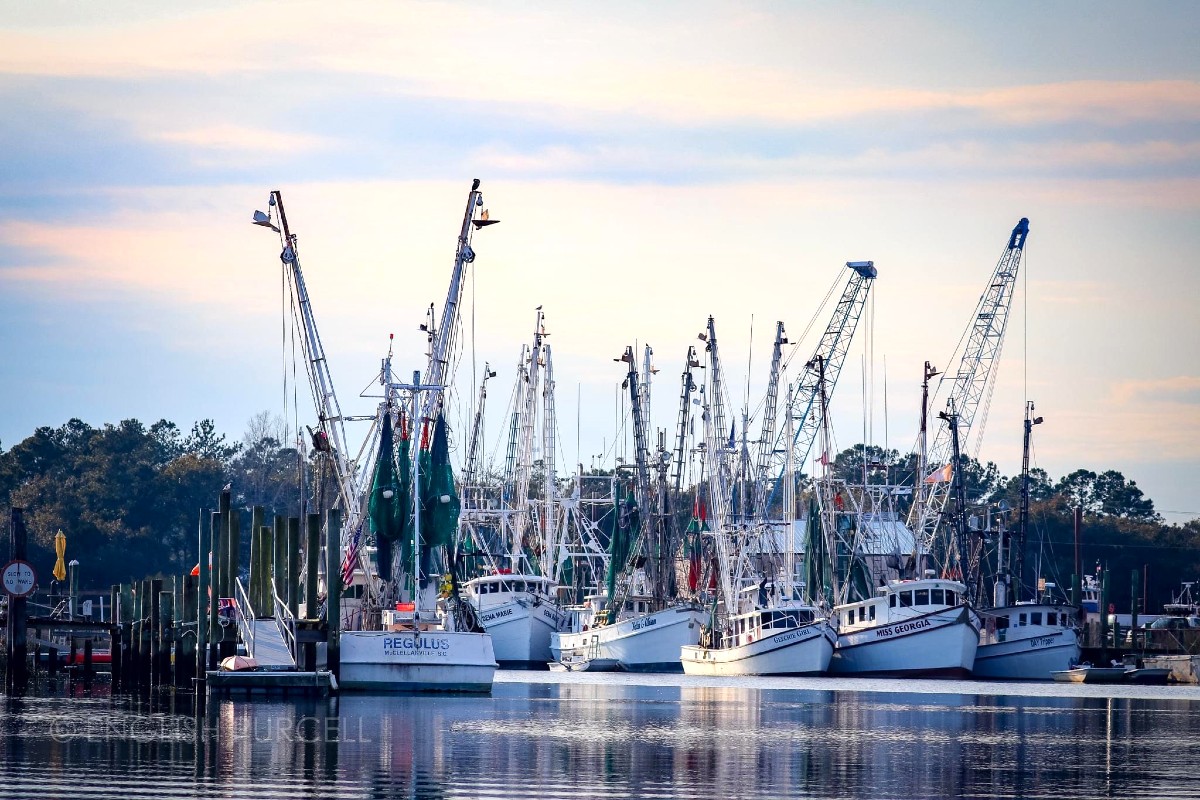
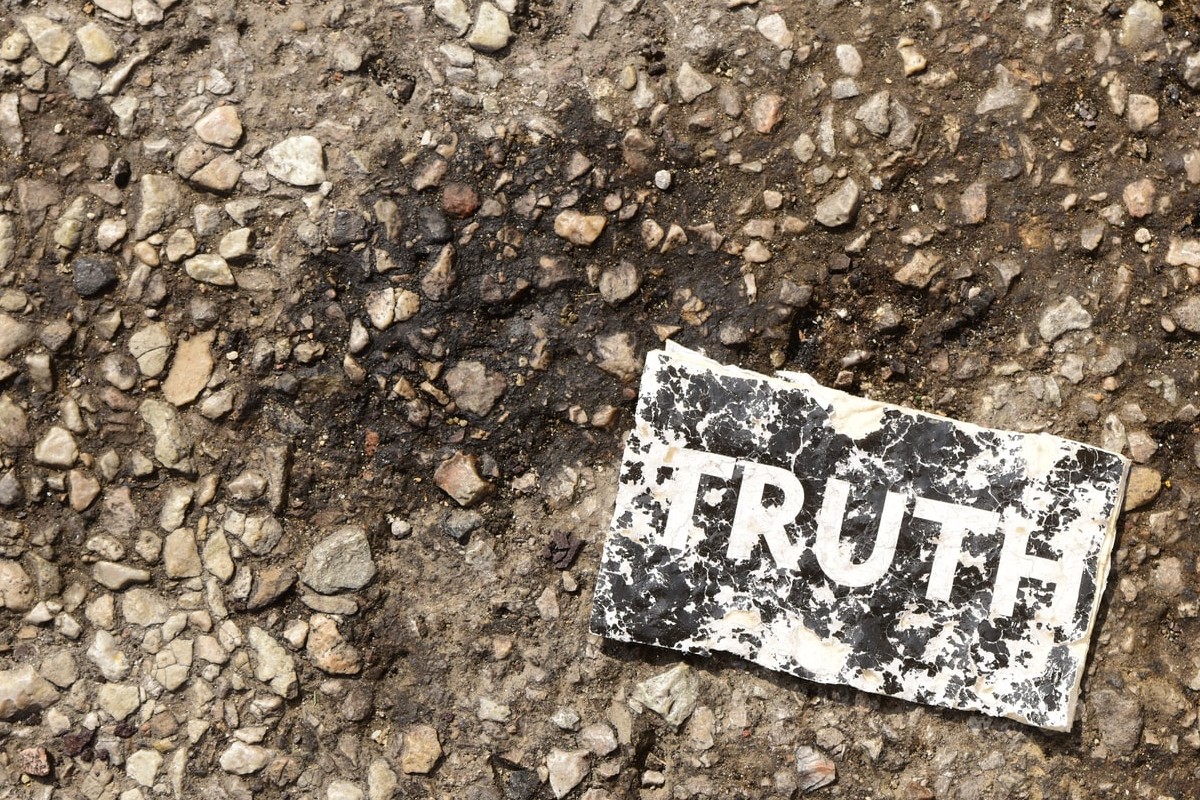
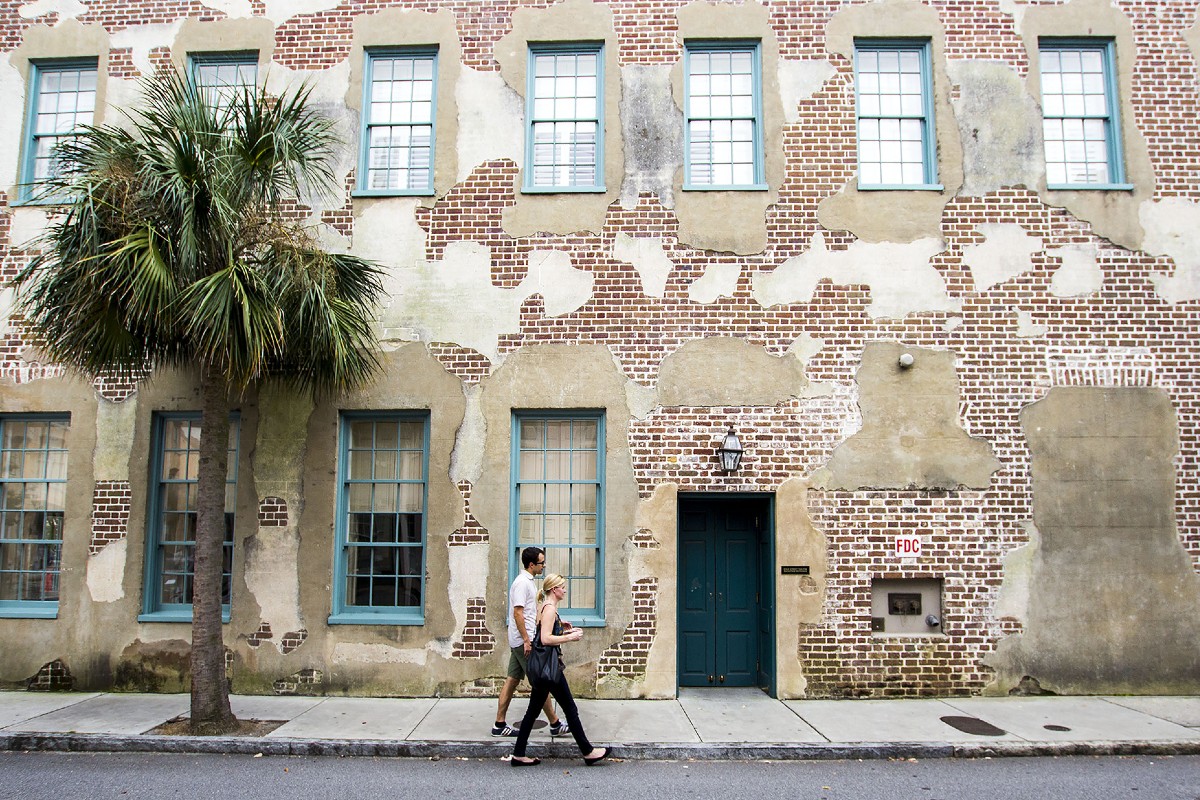

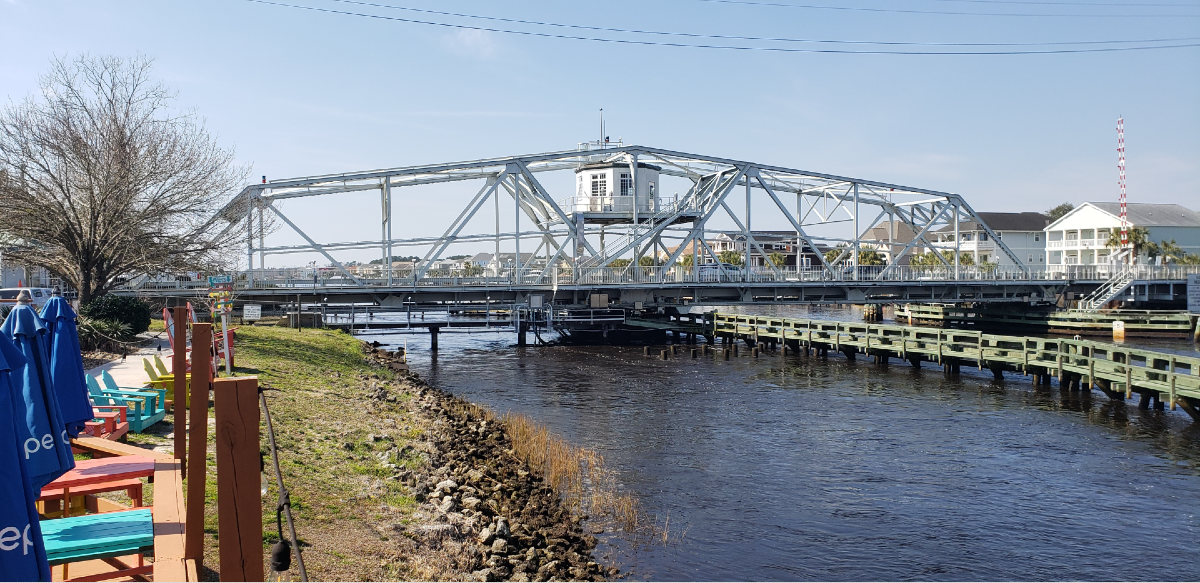



 We Can Do Better, South Carolina!
We Can Do Better, South Carolina!
























